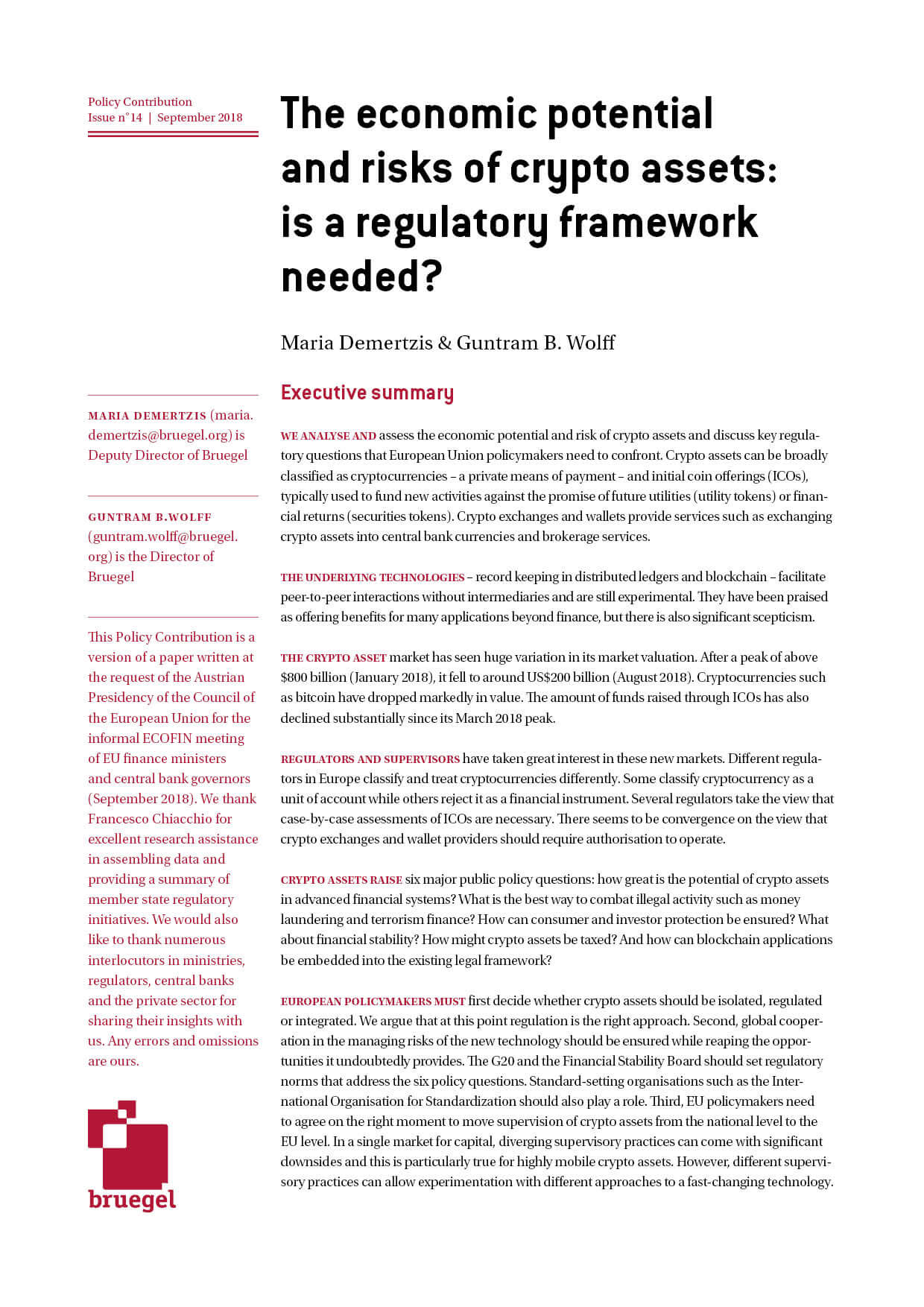Policy Contribution
The economic potential and risks of crypto assets: is a regulatory framework needed?
What is the economic potential and the risks of crypto assets? Regulators and supervisors have taken great interest in these new markets. This Policy Contribution is a version of a paper written at the request of the Austrian Presidency of the Council of the European Union for the informal ECOFIN meeting of EU finance ministers and central bank governors.
This Policy Contribution is a version of a paper written at the request of the Austrian Presidency of the Council of the European Union for the informal ECOFIN meeting of EU finance ministers and central bank governors (September 2018).
We analyse and assess the economic potential and risk of crypto assets and discuss key regulatory questions that European Union policymakers need to confront. Crypto assets can be broadly classified as cryptocurrencies – a private means of payment – and initial coin offerings (ICOs), typically used to fund new activities against the promise of future utilities (utility tokens) or financial returns (securities tokens). Crypto exchanges and wallets provide services such as exchanging crypto assets into central bank currencies and brokerage services.
The underlying technologies – record keeping in distributed ledgers and blockchain – facilitate peer-to-peer interactions without intermediaries and are still experimental. They have been praised as offering benefits for many applications beyond finance, but there is also significant scepticism.
The crypto asset market has seen huge variation in its market valuation. After a peak of above $800 billion (January 2018), it fell to around US$200 billion (August 2018). Cryptocurrencies such as bitcoin have dropped markedly in value. The amount of funds raised through ICOs has also declined substantially since its March 2018 peak.
Regulators and supervisors have taken great interest in these new markets. Different regulators in Europe classify and treat cryptocurrencies differently. Some classify cryptocurrency as a unit of account while others reject it as a financial instrument. Several regulators take the view that case-by-case assessments of ICOs are necessary. There seems to be convergence on the view that crypto exchanges and wallet providers should require authorisation to operate.
Crypto assets raise six major public policy questions: how great is the potential of crypto assets in advanced financial systems? What is the best way to combat illegal activity such as money laundering and terrorism finance? How can consumer and investor protection be ensured? What about financial stability? How might crypto assets be taxed? And how can blockchain applications be embedded into the existing legal framework?
European policymakers must first decide whether crypto assets should be isolated, regulated or integrated. We argue that at this point regulation is the right approach. Second, global cooperation in the managing risks of the new technology should be ensured while reaping the opportunities it undoubtedly provides. The G20 and the Financial Stability Board should set regulatory norms that address the six policy questions. Standard-setting organisations such as the International Organisation for Standardization should also play a role. Third, EU policymakers need to agree on the right moment to move supervision of crypto assets from the national level to the EU level. In a single market for capital, diverging supervisory practices can come with significant downsides and this is particularly true for highly mobile crypto assets. However, different supervisory practices can allow experimentation with different approaches to a fast-changing technology.
Download the online annex.








